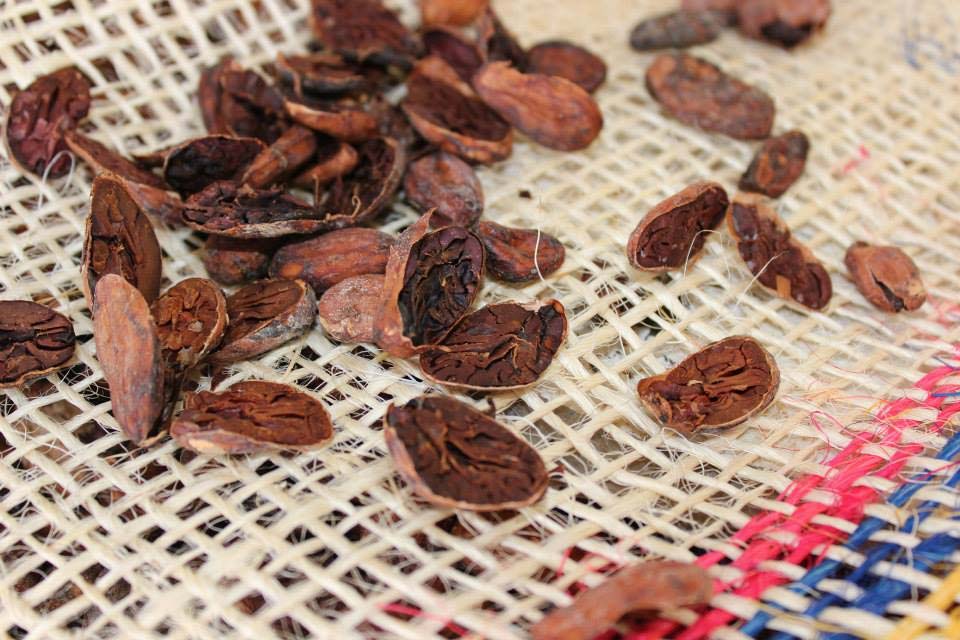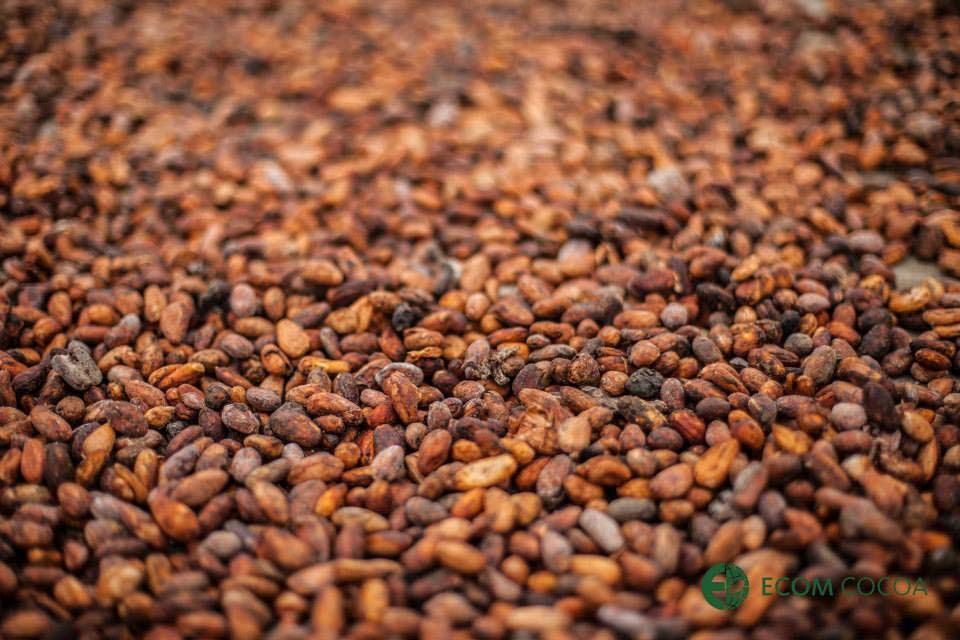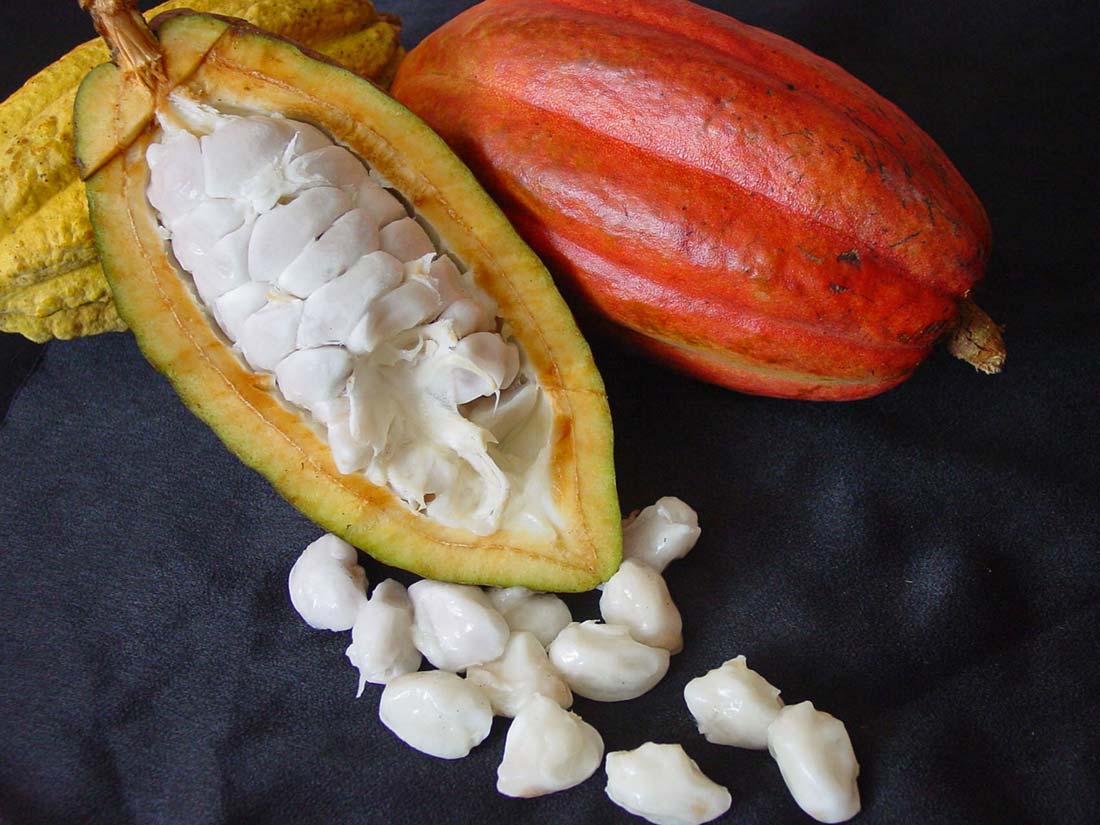Better Chocolate, Better Planet
Complex challenges surround the global chocolate industry, including issues of environmental sustainability, biodiversity loss, climate change and fair labor. But, as more and more consumers realize the true cost of chocolate, corporations must meet higher demands to create a more sustainable and just system.
Often, change in the industry starts with small fair trade organizations and chocolate producers that combat conventional chocolate production. Find out how one Indiana chocolate manufacturer, Davis Chocolate, created its whole business around making chocolate a better way.
INDIANA'S BEAN-TO-BAR MANUFACTURER
The Davis Chocolate factory in Mishawaka, Indiana receives dried cacao beans and then roasts them on-site, earning the company the distinction as Indiana’s only bean-to-bar chocolate manufacturer.
The company creates organic dark chocolate bars at 30%, 50% and 70% dark chocolate as well as chocolate cocktail sticks, truffles and cacao nibs. The company also creates private label products. Davis Chocolate products are sold through its website and Amazon as well as through local retailers in Mishawaka.
 Cacao beans are fermented, often for five to seven days, and then dried in the sun to prepare them for roasting.
Cacao beans are fermented, often for five to seven days, and then dried in the sun to prepare them for roasting.
ENVIRONMENTAL SUSTAINABILITY
Conventional chocolate production threatens biodiversity through deforestation and pesticide pollution. As soon as artisanal chocolate producers recognize this issue, they often choose to do something about it. That’s what happened at the Davis Chocolate factory in Mishawaka, Indiana.
“Davis Chocolate believes that in order for us to craft premium chocolate, we must work in ways that do no harm to our planet and create opportunities for the communities where the cacao beans are grown,” reads the company’s mission statement.
To achieve this, Davis Chocolate partners with the Rainforest Alliance to choose farms that use environmentally safe practices. The Rainforest Alliance certification also indicates ethical farming practices.
“We obtain our beans from companies with sustainable practices. Agroindustrias Unidas de Cacao and Atlantic Cocoa Company are the companies,” says Brenda Sepúlveda, who runs marketing for Davis Chocolate.
Both of these companies are part of the ECOM Agroindustrial Corporation, which grows and exports cacao beans from countries that include Cameroon, Ghana, Nigeria, Papau New Guinea and Indonesia.
Davis Chocolate products also carry an “organic” label, which represents a process that begins at a chocolate farm. Organic chocolate also combats pollution because it indicates cacao beans that were grown without harmful pesticides.
Extending its global sustainability mission to the local community, Davis Chocolate also donates cocoa hulls to the local Unity Gardens in South Bend. This often-discarded part of the cacao bean becomes a nutrient-rich mulch used to grow vegetables.
 When cacao beans are roasted, the temperature and time varies depending on the type of chocolate product that will be created.
When cacao beans are roasted, the temperature and time varies depending on the type of chocolate product that will be created.
FAIR TRADE CERTIFIED CHOCOLATE
In addition to the Rainforest Alliance and organic certifications, Davis Chocolate chooses to work with cacao growers that have earned a Fair Trade distinction.
“We buy only beans that are Fair Trade certified. This ensures that the farmers are paid fairly for their hard work and children are not exploited in the farming and harvesting process,” according to Davis Chocolate’s website.
Fair Trade represents a turn away from conventional chocolate production and toward a system that prohibits child and slave labor, values farmers and subsidizes wages.









